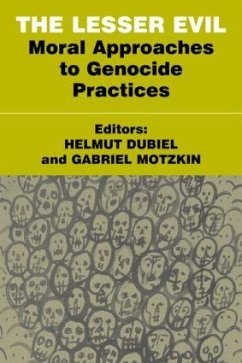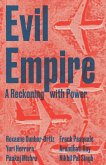Or did the Communists' supposed greater 'rationality' induce them to create an even more imaginary system? Did the Nazis' allegedly greater irrationality make their acts more heinous? How do these issues affect postwar interrelations between memory and history? Are there tensions between the ways postwar societies' remember these atrocities, and the ways in which intellectuals and scholars reconstruct what happened? Nazism and Communism have been constantly compared since the 1920s. A sense of the ways in which these comparisons have been used and abused by both Right and Left belongs to our common history. These twentieth century evils invite comparison, if only because of their traumatic effects. We have an obligation to understand what happened, and we also have an obligation to understand how we have dealt with it.
In this book scholars debate the evils of Nazism and Communism and explore methods and purposes of comparing the two.
In this book scholars debate the evils of Nazism and Communism and explore methods and purposes of comparing the two.








